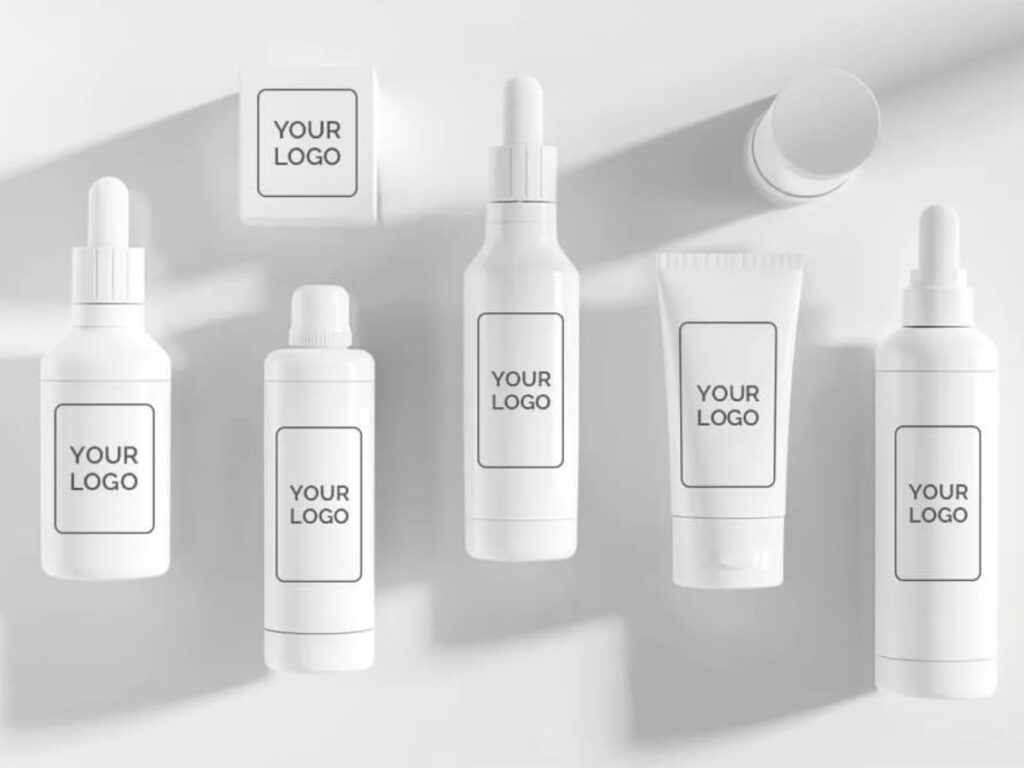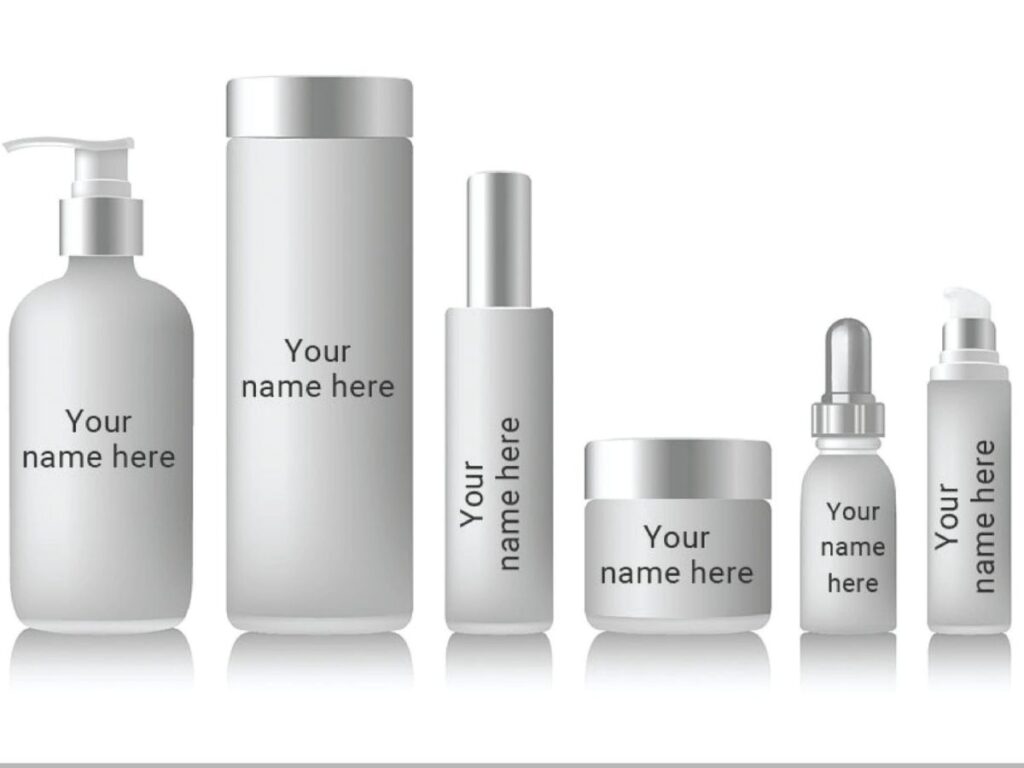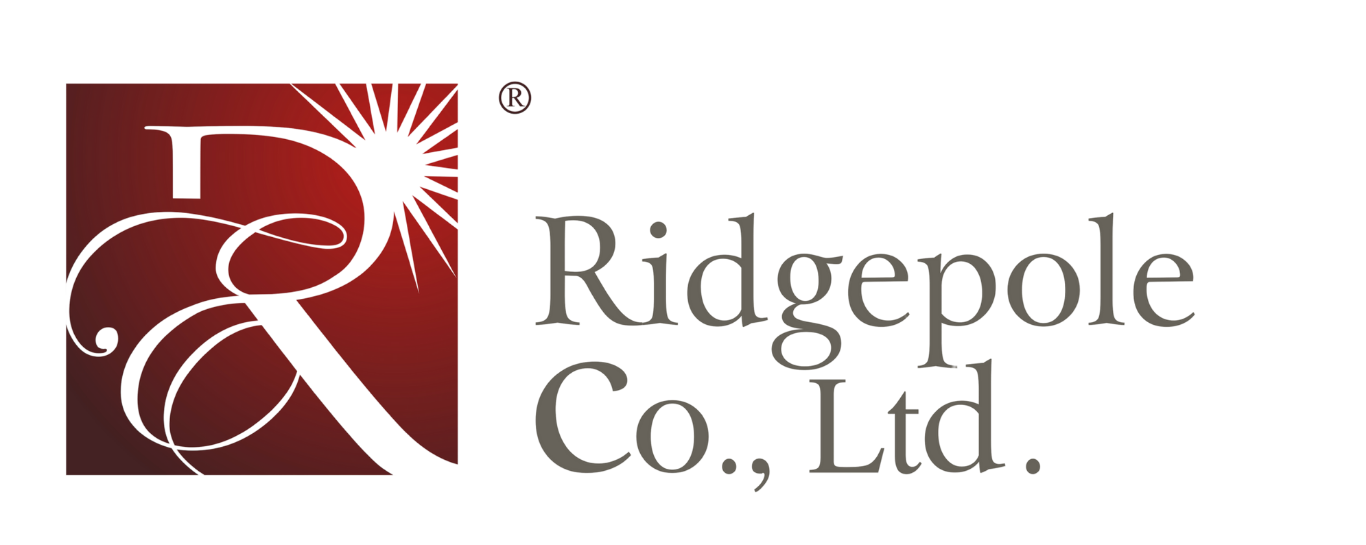White Label vs. Private Label Cosmetics: A Comparison Guide

Author: Tommy Tang | Founder at Ridgepole
Hi, I'm Tommy Tang, here to share my expertise in skincare with you.
Table of Contents
Years ago, I started my first skincare brand. I was excited, full of ideas, and ready to launch. But I had no clue whether to go with private label or white label.
I spent weeks researching, talking to manufacturers, and testing products. I made mistakes—costly ones. But through trial and error, I figured out what works.
Now, as someone who helps businesses launch their own skincare lines, I want to save you from the same struggles.
If you’re stuck between these two options, this guide will clear things up. You’ll learn what makes them different, their pros and cons, and—most importantly—which one fits your business best.
By the end, you’ll have the knowledge to move forward with confidence.
So let’s dive in!
1. What is White Label Cosmetics?
White label cosmetics are pre-made skincare products that multiple brands sell under their own names. The formula stays the same, but the packaging and branding changes.
Think of it like this: A manufacturer creates a vitamin C serum. They sell that exact formula to different companies. One brand puts it in a sleek glass bottle with a minimalist label. Another brand uses bright packaging with bold fonts. A third might target luxury buyers with high-end branding. The outside looks different, but inside? It’s the same serum.
This is how many skincare brands offer products without spending time or money on research and development.
How White Label Works
White label manufacturing allows businesses to launch products quickly without developing their own formulas. Here’s how it works:
- A manufacturer creates a skincare product: This could be a moisturizer, serum, face wash, or toner.
- Brands purchase the product: Instead of creating their own formula, they choose from a list of ready-made options.
- Custom branding: Each company designs its own labels, packaging, and marketing materials.
- Selling to customers: Even though different brands market it in their own way, the product inside remains the same.
Benefits of White Label
- Faster to market: No need to develop, test, or refine a formula.
- Lower costs: Saves money on research, formulation, and testing.
- Proven formulas: These products are already tested and ready to sell.
- Less risk: No need to guess if the formula will work—it’s already successful.
Who Uses White Label?
White label is a popular choice for:
- New brands: Startups that want to launch quickly without heavy investment.
- Retailers: Stores that want their own skincare line without developing products.
- Influencers & celebrities: Those who want to sell skincare under their name but don’t have formulation experience.
- Spas & salons: Businesses that want professional-grade skincare with their own branding.
White label works well for businesses focused on branding rather than product customization. But if you want exclusive formulas, private label may be a better choice.

2. What is Private Label Cosmetics?
Private label cosmetics are skincare products made specifically for one brand. Unlike white label, where multiple companies sell the same formula, private label products are custom or semi-custom. This means no other brand will have the exact same product.
Many well-known skincare companies use private label manufacturing to create unique formulas. They work closely with a manufacturer to develop products that fit their brand’s vision. The result? A skincare line that stands out in the market.
How Private Label Works
Private label allows brands to launch exclusive skincare products without investing in their own laboratory. Here’s how the process works:
- A brand partners with a manufacturer: They select an existing formula or request a new one.
- Customization begins: The brand can adjust ingredients, texture, scent, and even performance.
- Branding is applied: Everything from packaging to label design is made to match the brand’s identity.
- Manufacturing & production: The manufacturer produces the final product, but only for that specific brand.
This gives brands more control over their product line, helping them create skincare solutions that reflect their identity and meet customer needs.
Benefits of Private Label
- Exclusive formulations: Your skincare product won’t be sold by anyone else.
- More customization: You can adjust ingredients, textures, scents, and more.
- Stronger branding: The product fully represents your company.
- Higher profit potential: Exclusive products often sell for higher prices.
- Scalability: As your brand grows, you can expand with more custom products.
Who Uses Private Label?
Private label is a great option for businesses looking to create their own distinct skincare line. It’s often chosen by:
- Established skincare brands: Companies that want exclusive formulas only they can sell.
- Retailers & chain stores: Businesses looking to develop an in-house skincare line.
- Entrepreneurs & startups: Those who want a unique product instead of selling pre-made formulas.
- Luxury & high-end brands: Companies that want premium ingredients and exclusive formulations.
Private label is ideal for businesses that want control over their products. However, it requires more time and investment than white label. If you’re looking to build a long-term brand with unique offerings, private label could be the right choice.

3. Key Differences Between White Label and Private Label Cosmetics
Choosing between white label and private label cosmetics depends on your business goals. Do you want a quick, ready-made product? Or do you need something exclusive to your brand?
Both models have advantages, but they work differently. Here’s a breakdown of their key differences.
| Category | White Label | Private Label |
| Customization & Formulation Control | – Fixed formula (no changes to ingredients, texture, scent, or performance). – Limited brand customization (logo, label design, packaging in some cases). – Best for a fast, low-cost market entry. | – Full control over ingredients, texture, scent, and performance. – Can create unique product claims. – Custom packaging options. – Best for brands wanting exclusivity and a unique product. |
| Brand Differentiation & Exclusivity | – Sold to multiple brands (non-exclusive formula). – Competition is based on branding and marketing, not product uniqueness. | – Exclusive formula (your product is unique). – Stronger brand identity and unique selling points (USPs). – Helps build long-term brand value. |
| Cost & Investment Requirements | – Lower upfront costs (no R&D expenses). – Lower minimum order quantities (MOQs), making it ideal for startups and small businesses. – Costs mainly involve packaging and branding. | – Higher upfront costs (R&D, testing, and regulatory approvals required). – Higher MOQs due to custom formulation. – Suitable for brands with a bigger budget and long-term vision. |
| Speed to Market | – Faster launch time. – Products are already developed and ready to sell. – Can launch within weeks (for simple branding) or a couple of months (for custom packaging). | – Takes longer due to product development, stability testing, and regulatory approvals. – Can take several months to a year. – Best for brands focusing on long-term growth. |
Both options have their place in the skincare industry. The right one for you depends on your goals, budget, and timeline.
4. Which One is Right for Your Skincare Brand?
Choosing between white label and private label depends on your budget, timeline, and long-term goals. Do you want a quick and affordable option? Or do you need full control over your product? Understanding what each model offers will help you make the right decision.
White Label is Best For:
White label is a great choice if you want to launch quickly with minimal investment. Since the formulas are already developed, you don’t have to spend time on research and testing. Instead, you can focus on branding and marketing.
White label is ideal for:
- Startups with limited budgets: A cost-effective way to enter the market.
- Brands that need a fast launch: Products can be ready to sell in weeks.
- Retailers & chain stores: Supermarkets, beauty stores, and online sellers who want their own branded products.
- Influencers & entrepreneurs: Those looking to sell skincare without developing a unique formula.
Private Label is Best For:
Private label works best for brands that want exclusive skincare products. It gives you full control over ingredients, packaging, and branding. This option requires more investment, but it offers long-term benefits.
Private label is a good fit for:
- Established brands: Companies looking for custom formulations that no one else has.
- Luxury & premium skincare businesses: Brands that want to stand out with high-end, unique products.
- Businesses planning to scale: Those looking to grow their product line over time.
- Companies with specific ingredient needs: If you want to create a clean, organic, or dermatologist-approved formula, private label allows customization.
Some businesses start with white label and switch to private label as they grow. Consider your budget, timeline, and strategy before making a decision.
Conclusion
Choosing between white label and private label comes down to your goals. White label is faster and cheaper, but many brands sell the same product. Private label gives you full control, but it takes time and money.
Think about your budget. Consider your market. Do you want something quick, or are you building for the long term?
I’ve seen brands succeed with both. The key is knowing what fits your vision.
Your skincare brand deserves the right foundation. Which path will set you up for success?
Still unsure? Let’s talk. We can help you find the right solution for your brand.
Learn More: Recommended Reads
Need more ideas? Browse through our extended range of products and discover something new:
Still haven’t found what you’re looking for? Don’t hesitate to contact us. We’re available around the clock to assist you.
Quick Quote
Own Your Private Label Cosmetic Line Is No Longer Difficult Here!





